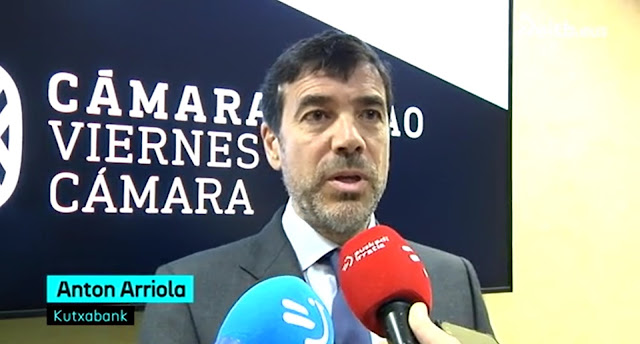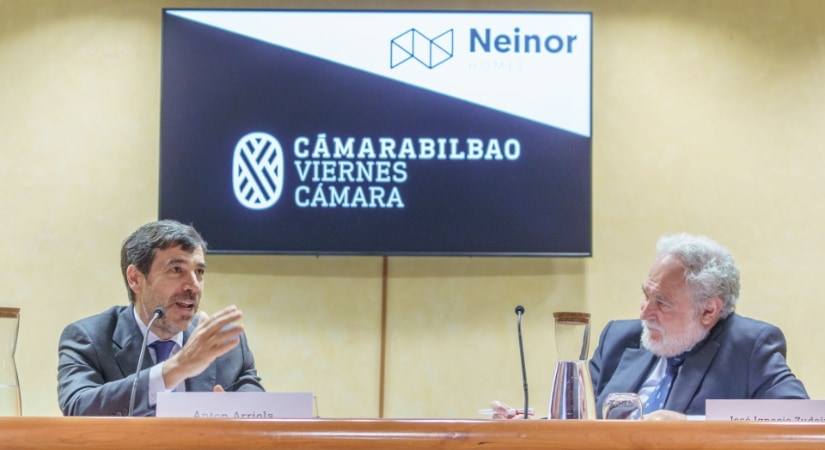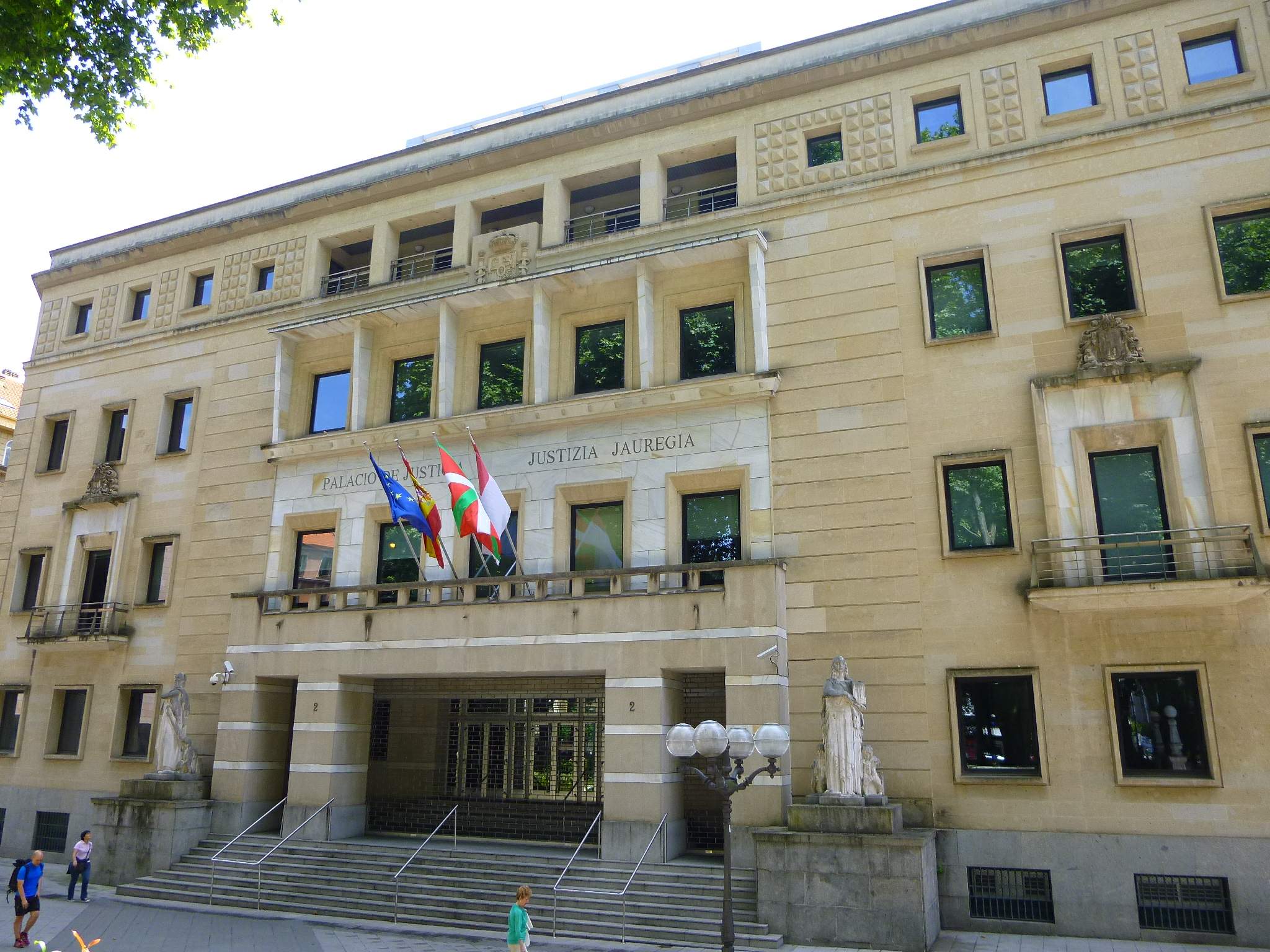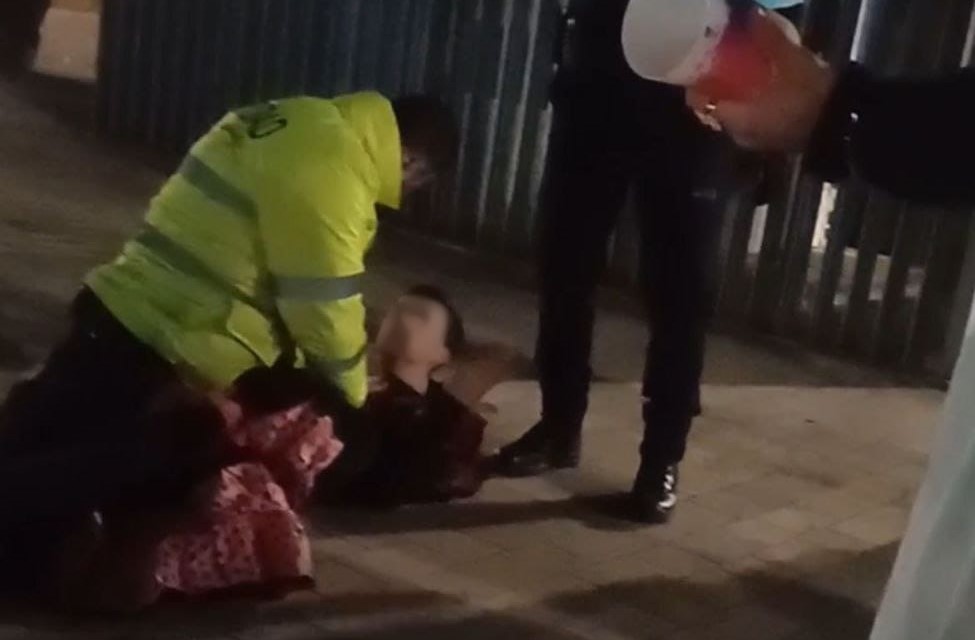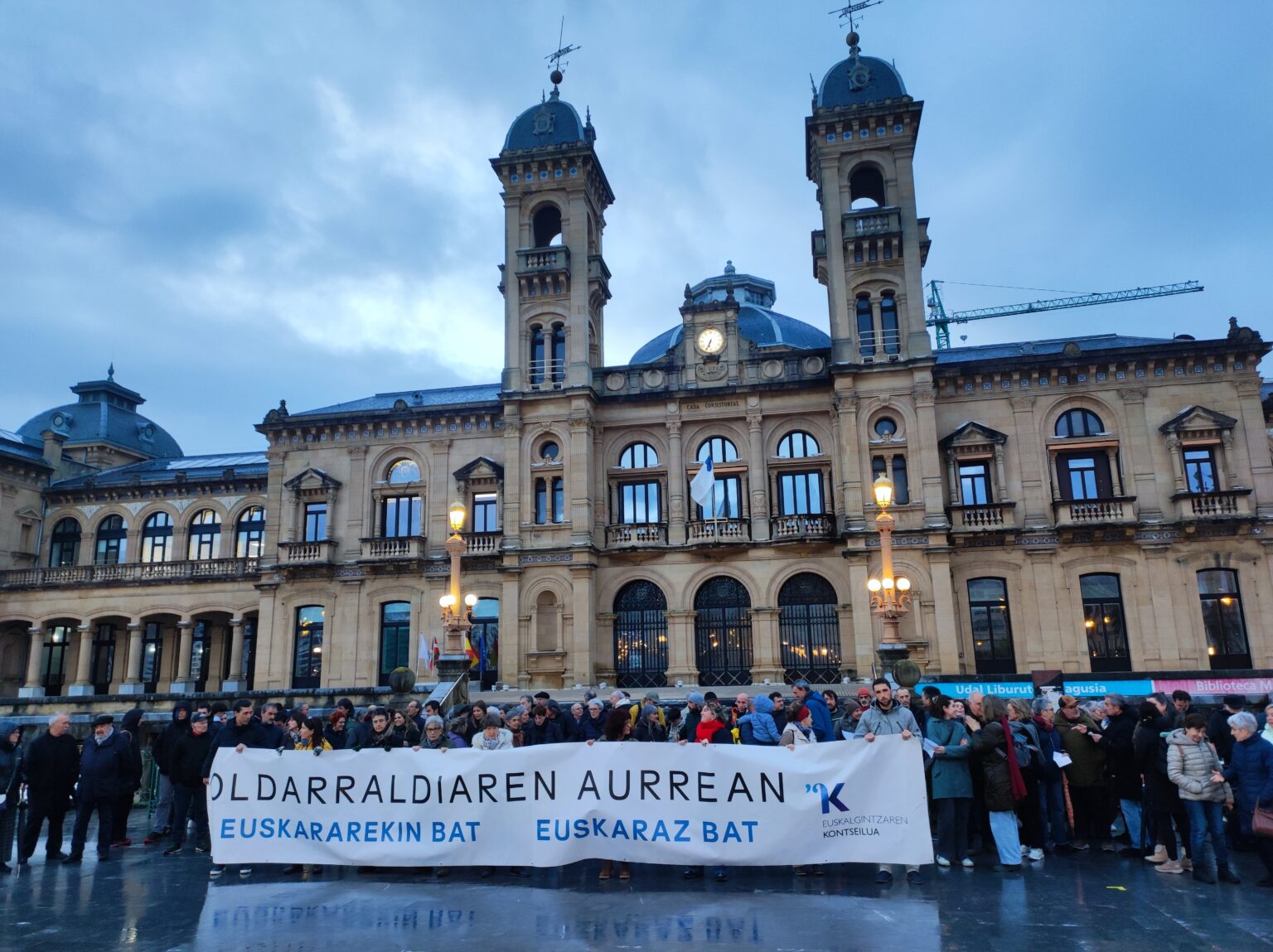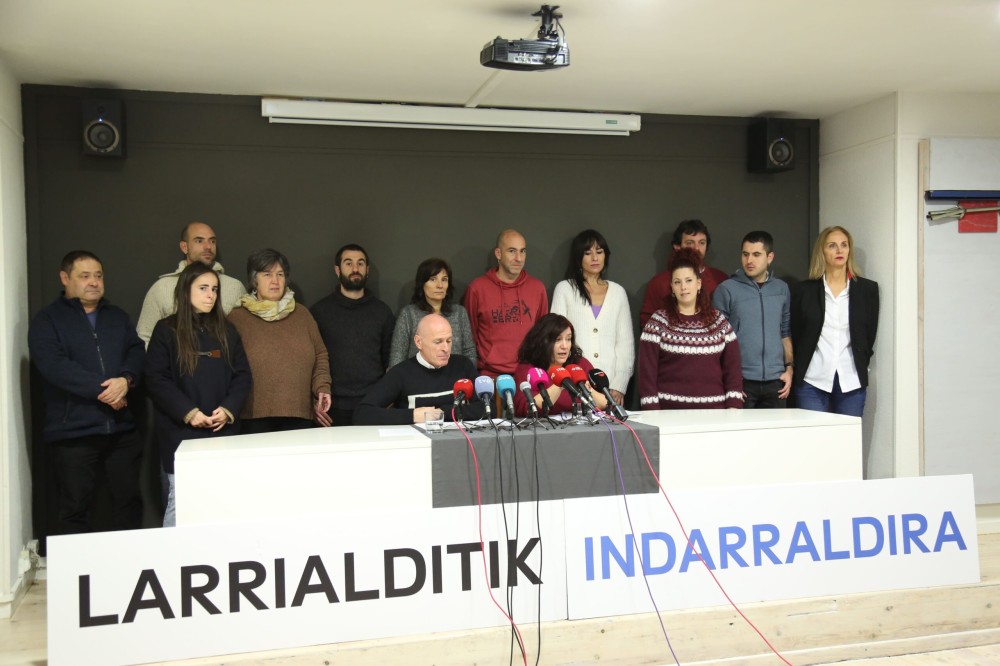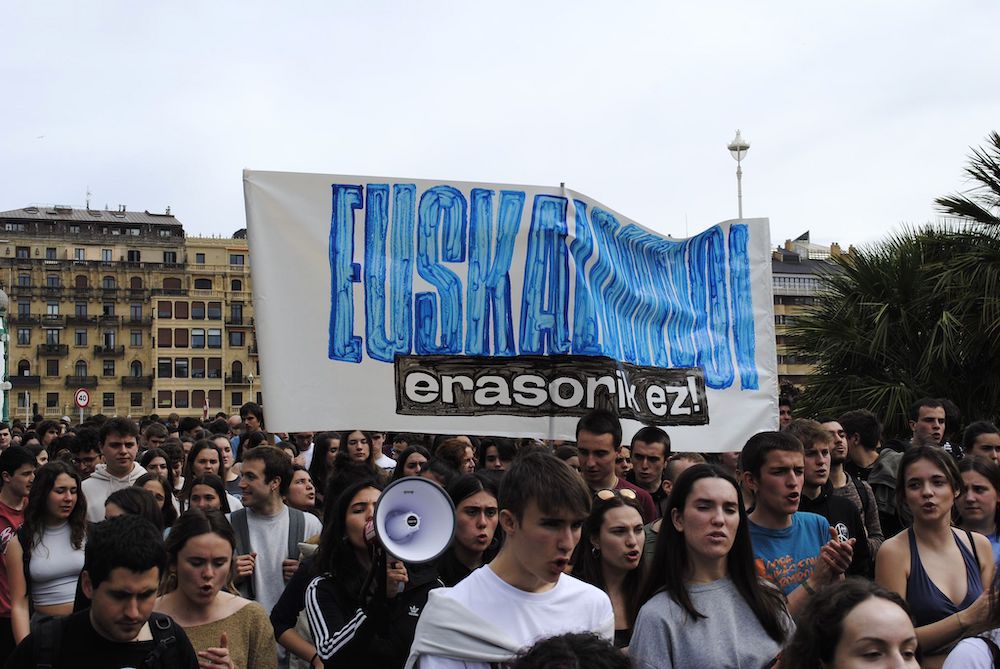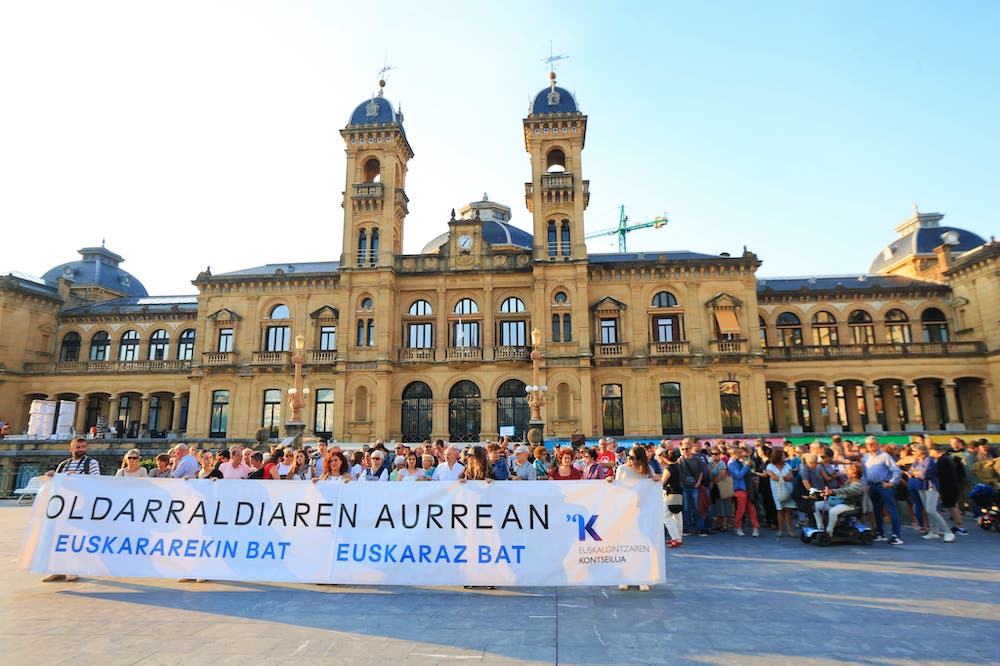Let's talk about linguistic oppression.
- The Greek word φόβος or fobos means fear. However, when used in composite words, in addition to calling specific horrors, such as arachnophobia, it is used to talk about hatred or horseshoe to a set of themes or people, such as homophobia. In this skin we will move the definition to the realm of linguistic oppression and analyze the opposition to the normalization of Euskera.
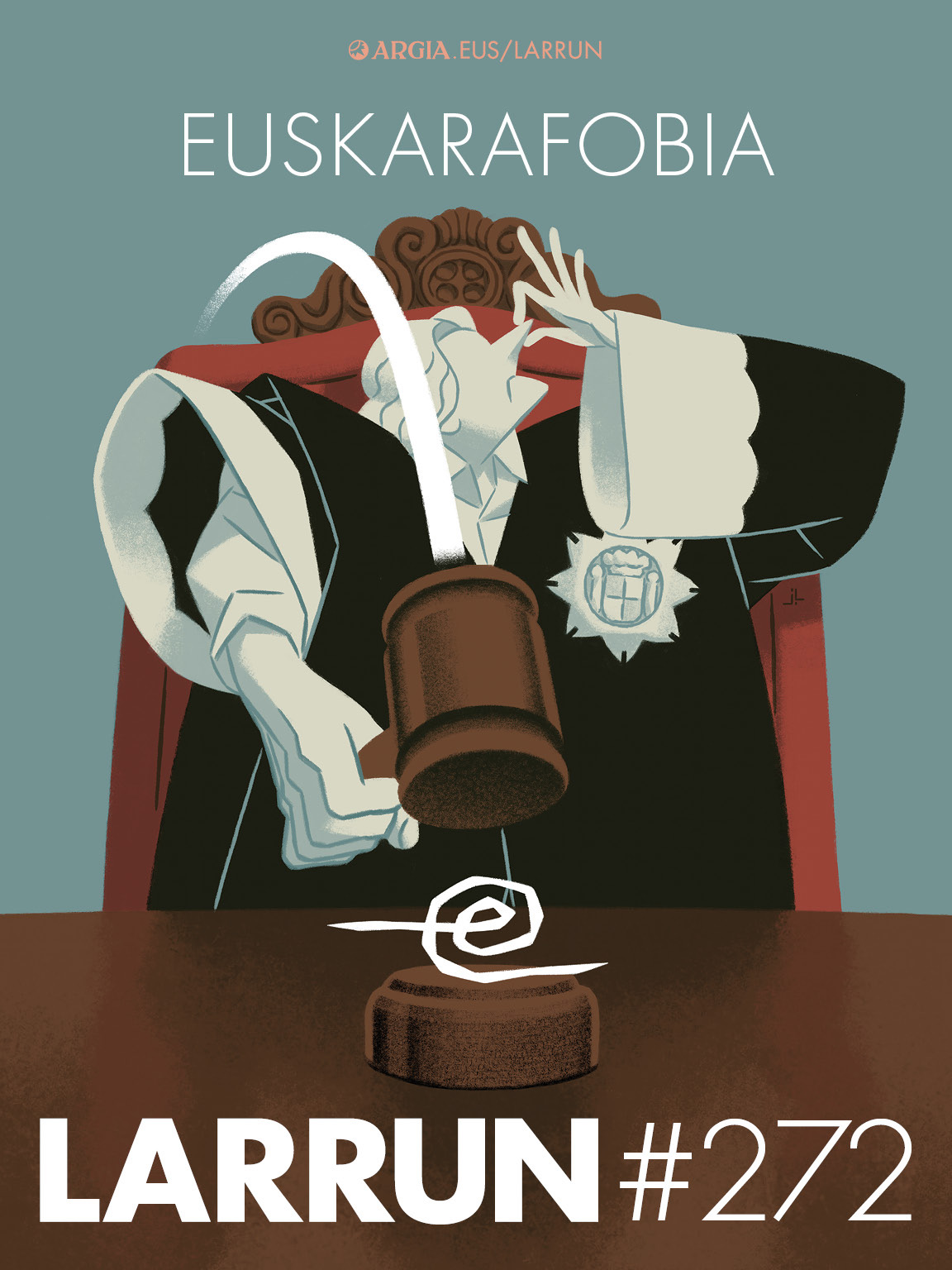
In our small world, Judge Bilbain Ana María Martínez Navas has recently created a great deal of uproar, as she has decided that Euskera is difficult, “one of the five most difficult languages in the world”, and that the City of Laudio, despite putting the means to fulfill the linguistic profile, did not achieve the level that required in eight years the job, suspended the contract to retake the worker. There has been a stir in social media, jokes have been made, the judge's past judgments have been analyzed, linguists have shown that it has neither foot nor head and Basque cultural activity has been mobilized. However, the ideological battle continues and the speeches against the Basque people are constantly being renewed. We take as an example the article The essential inequality of languages, published by the newspapers El Correo y El Diario Vasco in the press of Laudio. Signed by José María Ruiz Soroa, Doctor of Law and retired professor at the UPV/EHU.
This is fundamentally a claim against equality. In short, he says that, because languages are different, differences predominate. “The judge maintained one of the most anecdotal aspects of this inequality, of the difficulty of learning, but the difference between languages remains in essence.” Next, three main ideas.
.jpg)
On the one hand, that Castilian allows the understanding of many people in many places, and that minority languages – understand Euskera – with a few and in one place. Therefore, “Spanish is a better language, as it is better to use radio or television than to scream or play the drum”.
Secondly, “Spanish is the common language of continental Basque citizens”, because it allows everyone to understand each other. “The Basque language is the particular language of a part of Basque society (…) and the common language is the greatest richness of a modern political society that allows citizens to participate in social and political debate”.
Thirdly, it ends by delegitimizing the policies aimed at the normalization of the Basque country: “They try to correct history and reality with policies in favor of the Basque Country (…) and to do so it is necessary to impose a system of discrimination with its incentives, prizes and punishments, as powerful as to impair human behavior and the outcome of history.” In other words, using the main Castilian and Spanish media, in addition to calling the Basque language a more unfavorable and particular language – an exercise of supremacy – he relates punishments and impositions to the oppressed language and says that seeking equality is “trying to correct reality”. Let the reader not be surprised if one day a judge used these arguments to reject any policy in favor of the Basque country.
In fact, Euskera-Afobos discourses allow concrete aggressive attitudes. Despite the fact that in daily life the Basque people, who try to live in Euskera, from time to time some news items jump to the press: Villafranca City Hall has censored posters that were bilingual in early March, because they were also in Basque; Eneko Sagardoy has denounced that in the Teatro Principal de Vitoria there was talk in Basque "In Spanish when!" have shouted, denounced that they have arrested a citizen in Eibar for wanting to speak in Basque with the Ertzaines; he has just opened up on social networks and many laugh at a talking Basque who is not in Spanish in a court...
What is Euskaphobia?
Although Euskaltzaindia has not yet collected it in his dictionary, in Wikipedia we can read the following: it is an attitude contrary to the Basque Country. For centuries the authorities, the managers of the school systems or some public figures and individuals have pursued the Basque – the free encyclopedia continues. The Basque language has historically taken the form of prohibitions, persecutions or other measures and demonstrations, and opposition to the Basques began to be explicitly manifested in the documents of the Upper Middle Ages. Spanish and French school systems have long worked against Euskera, underscoring or prohibiting Euskera.
.jpg)
“Like racism, machismo or any kind of oppression, the marginalization and domination suffered by the Basque people by the Spaniards and French people is found in some dormant balls. It doesn't look, it doesn't appear, our language is sweet in its realms, in the minds of its speakers. But you know that it can happen, that you will suffer a micro-attack on your right to the use of the Basque Country, or a macro-attack, that puts upside down your linguistic peace, that offends you everything and that makes you feel helpless, as in the hands of the public authorities, of the institutional part of the Basque Country. It’s always the same and has no solution.”
It is the beginning of Pako Aristi's article entitled Euskaraphobia, published in the newspaper Berria. We are therefore talking about a conscious and political attitude against a vulnerable social minority as a linguistic community. It is not an exclusive oppression of the Basques in the world, it occurs in all those places where several languages share a geography and touch each other, and always some become hegemonic displacing and increasing others in social uses. Cultures die thus, in most cases without producing noises in a globalized world, let alone without demanding responsibility from those responsible for this linguicide. In February it was discovered that the last speaker of the Yaganera language died in Chile, Cristina Caldera, 93 years old. Her sons did not want to learn the language, with fear of being discriminated against, as one of her daughters has pointed out on social media. Castilian has displaced this people through discrimination and other mechanisms of oppression.
.jpg)
Persecution is linked to a lack of sovereignty and the main empires have exercised brutal violence for many years – ask if not the Inuit, Meti, Dakota or Cheiene peoples of North America; the European, Welsh, Corse or Samis; the Mapuches of South America, the Yuwe, the Quechua or the Bashallows of Africa; the islands, the Sians. There are 6,000 languages in the world, but fifteen languages are spoken almost all over the world. Why? There are deeply painful assimilation processes, very violent in many moments of history, very subtle in modern times and almost always very effective. To the point where people don't transmit their mother tongue for a thousand reasons. Experts say that half of the world ' s languages today will disappear in 100 years, although this has not led the world ' s major states to establish alarm situations and to multiply policies and budgets for the revitalization of languages.
Who has tried to eliminate Euskera?
There are countless measures and laws adopted against citizenship to reduce the use of Euskera in the Basque Country. And of course, the Basque Country has gone back in history, but it cannot be said that it has evolved naturally. As in Dabid Anauten "The Broken Chains of the Basque Country", in several works by Joan Mari Torrealdai – The Black Book of the Basque Country or Siege to the Basque Country. Beyond the black book…– the memory of linguistic oppression has been documented. The conquest of Navarre, the French Revolution, the mandate of Isabel II.aren or the dictatorship of Primo de Rivera caused enormous repression against the Basques, to mention a few historical deadlines. However, the most well-known indicator of the extreme of political oppression is Franco, even denying the contempt for the Basques in the language itself, claiming in Francoist schools that the Basque language was dialect.
These attacks have left profound consequences for the community, and in many places disrupted the transmission of Euskera. In the South, the Basque Movement Euskal Pizkundea that ascended before the War of 1936, for example, was suddenly cut off. These kinds of sanctions have left a deep wound to the self-esteem of many Basques and have been the main cause of the loss of thousands of speakers such as the territory by the Basque Country in recent centuries. Because nobody puts aside their mother tongue without violence. Nowadays, the obstacles to the Basque country have, in most cases, another aspect. Without the need to prohibit the Basque Country, to give the hegemonic languages full power, medium, legal protection and social prestige is a direct way of fighting the small, subtlety.
.jpg)
However, thousands of Basques have transmitted the language from generation to generation, demonstrating political awareness of being a people that brings the Basque. The link of resistance has been each of the people who have transmitted the language to the next generation, whether they are vasco-speakers or not. It is noteworthy that thanks to the popular and institutional initiative, the retrospective language in the last 60 years has been acquiring new spaces in the seven territories. Today, although opponents of the Basque Country try to relate linguistic normalization in political dialectics with imposition, a political strategy is hidden to maintain power relations, usually with interests that go beyond language.
“Euskera is a powerful sign of identity and identity. The understanding of Euskal Herria as an excellent instrument for cohesion and national construction is probably the main cause of the resistance to Euskera of the Spanish and French political agents that frighten the empty smells of the Basque Country. The Basque Country makes us different,” as Anaute says in his book “Euskararen kate labortuta”.
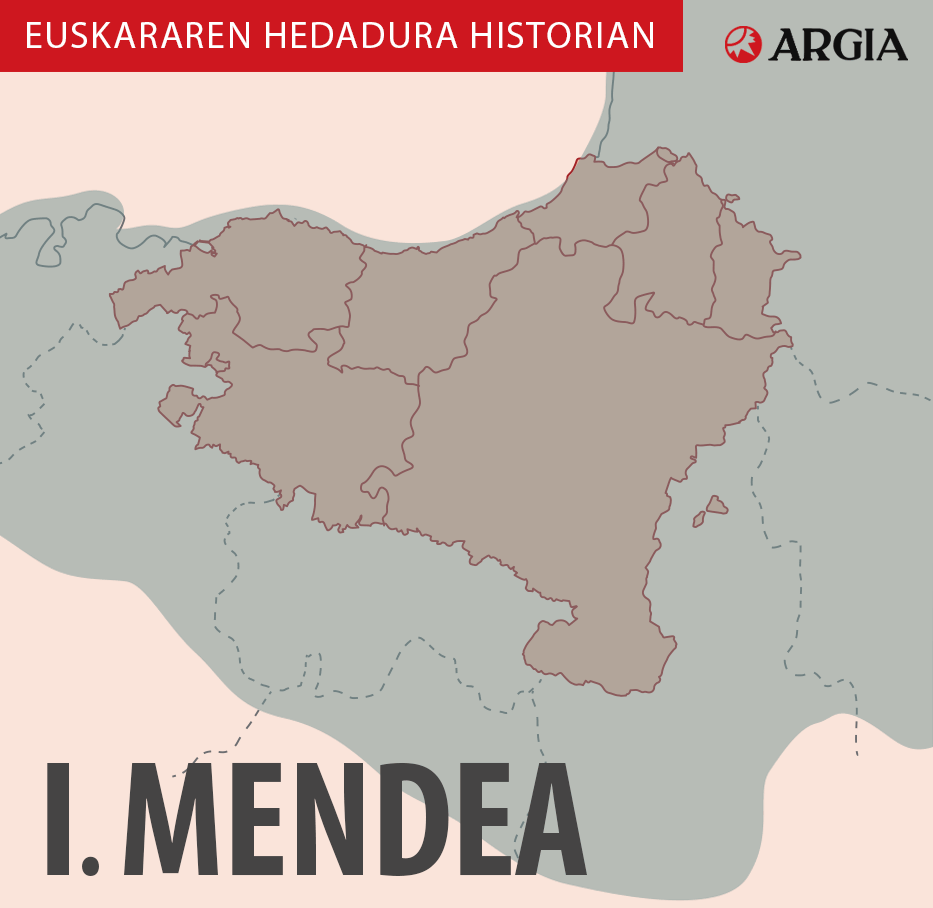
“Behin eta berriz, erdaraz bakarrik, dominioetan usatzen den hizkuntza batzuk extingua izango dela”. They rarely make such clear their intention to end languages, which is why it is Charles III on May 10, 1770. Important document signed by Borbón, Cédula de Aranjuez. It has not been a single period, as at some point the political aspirations underlying the policies of hegemonic languages are explained. At 250 years of the aforementioned text, in 2012, the Spanish Minister of Culture, José Ignacio Wert, said that he wanted to suppress the model of immersion in Catalan and impose hours in Spanish with the objective of “Spanish” to the Catalan students.
Spanish and French school systems have long worked against Euskera, underscoring or prohibiting Euskera
Prejudice affects attitudes
Prejudices gather a large number of generalized beliefs about the linguistics or linguistics of certain non-experts. They are generalist, beneficial or harmful. And what are the prejudices of the Castellanoparlantes of the Basque Country towards the Basque Country? In the analysis of this topic, an in-depth investigation in the CAPV conducted by researchers Esti Amorrortu, Ane Ortega, Itziar Idiazabal and Andoni Barreña, published in 2009 is an essential reference. “Some prejudices about Euskera are based on ignorance, but the influence of these generalized convictions is of great importance because of their social implications,” they point out.
Discussion groups were organized with 47 people who do not know anything or do not know anything about Euskera and a quantitative research was conducted with 600 people aged between 18 and 55 years. In it, the prejudices of those who do not know the language have been collected, sometimes becoming contradictory to each other. There is everything: that Euskera is a difficult language, that to be Euskaldun we have to speak well, that some speak well, but that most do it badly – because the dialects speak and not the unified Basque, or because they add up and not in the dialects – that children learn easily, but that for adults it is almost impossible, that it is about to lose the Basque company, that it is a burden.
"These prejudices can be healthy to promote the situation of bilingualism or plurilingualism, as they hinder the maintenance of the small language or the learning effort," said these researchers.
The prejudices feed the political attitudes of people, to name a few: that it is a bad education to speak in Basque when there is a Castilian language, that the Basque is no more important than any capacity, that the same level of Euskera cannot be demanded everywhere, that it is better for everyone that there is a single language, that goes too fast when it comes to recovering the Basque language, that there is a weak decision to learn.
Giving hegemonic languages full power, medium, legal support and social prestige is a direct way to fight the smallest.
Talking about these attitudes does not mean that anyone who says or thinks about one of these ideas is Basque and Afoba; we have defined it as a political and conscious attitude against the Basque. The attempts of this bilingual society have led many citizens to suffer all kinds of linguistic stress and not to learn Basque or to exclude Basque from their lives, without taking a stand against it.
They feel fatigue
“When news comes out punctually, people are inflamed, but in daily life we have many assimilated realities and we don’t have the tools to deal with it. I think there is awareness, but they have turned us off. There are a lot of people going to the observatory, but you notice the despair and the tiredness of years. I don't want to insist on this -- people say. We see that citizens who suffer these rights violations also suffer side effects that affect them.” Agurne Gaubeka, Director of the Observatory on Linguistic Rights.
He believes that phobia is more to people than to Euskera, to minorities. Hegemonic or non-majority phobia. “The Basque language is reflected in different areas and it is significant how it represses its rights in the field of language. We deal with those related to language, but I see great similarities with other oppression. Great thought must be given to these attacks on citizens and their assimilation into our lives. Public administrations have a responsibility,” he says.
Complaints, congratulations and consultations are collected at the Centre. Most are complaints and many are accusations of aggression. With the definition made by the feminism of the aggressions, we understand as aggression everything that feels that a Basque, because he is Basque, because he tries to live in Basque, has been crushed by another. These are also generalists, as seen in the reports they draw up each year. The most repeated are the examples of envisibilization – lack of supply in Basque, errors, feeling of secondary citizenship... – or attacks on someone to speak in Basque.
.jpg)
When citizens inform those responsible for complaints, they ask what kind of answers they usually receive, he says that many public or private institutions do not even respond. “Not only because the Observatory does not recognize its legitimacy, but because they think they are small. If a poster is badly written in Basque, someone denounces it, communicates it and many times they do not answer. You are judging my work, I am serving you and many have attitudes like you with additional jobs. It says that some institutions question what was denounced by the citizen, for example, by saying that there are two versions or that this citizen may have some other interest, that he also asked to speak in Basque with the intention of issuing a fine, etc. : “Some answers are shameful.”
The whole oppression structure
Gaubeka believes that the Basque community has much to learn about the structure of oppression from feminism: “We have to train with the citizens to structurally oppress the language, because in the subject of languages there are particularities with respect to other struggles”.
Prejudices can be detrimental to promoting a situation of multilingualism, as they make it difficult to maintain a small language or the effort to learn.
Gaubeka sees it more appropriate to talk about the linguistic rights of Basque citizens beyond the rights of the Basques. It gives an example of what happened to an educational center in Durango. The general posters were produced in bilingual, but only in Spanish those addressed to newcomers from abroad. “This is very significant, you’re refusing some people to make their Basque. When we got in touch with the centre, they replied in a bad way – and in Spanish – “Neither in the Gambia, nor in Ecuador, nor in Guinea, and made us a super long list by email, in all these places there is no Basque talk”. They were shut up.
The Centre intends to establish links with other oppositions and struggles. This is how his colleague Onintza Irureta Harro summed up! The Platform, the Feminist Forum of the Basque Country, the Ongi Etorri refugee group and the Observatory on Linguistic Rights all came together: no racism, no feminism, no sexual diversity and because we want to live in Basque. Under this slogan, in an atypical photograph, we have seen the agents fighting on International Human Rights Day. The Observatory on Linguistic Rights aims to address this direction: to bring linguistic rights closer to other social groups and that the language defence agent himself expresses his commitment to other human rights.
Link Durango's anecdote to it: “We wanted to work on the subject of language from feminism, putting on the table that women have enormous difficulties in receiving Euskera – wanting to learn, but with time factors or money, for example – and we believe that to make them feel that people who come from outside are also part of our country, we must guarantee the right to learn Euskera. Make available the Basque Country.” It points out that in the defence of linguistic rights we must not forget the linguistic rights of those people who are not yet Vasco-speakers.
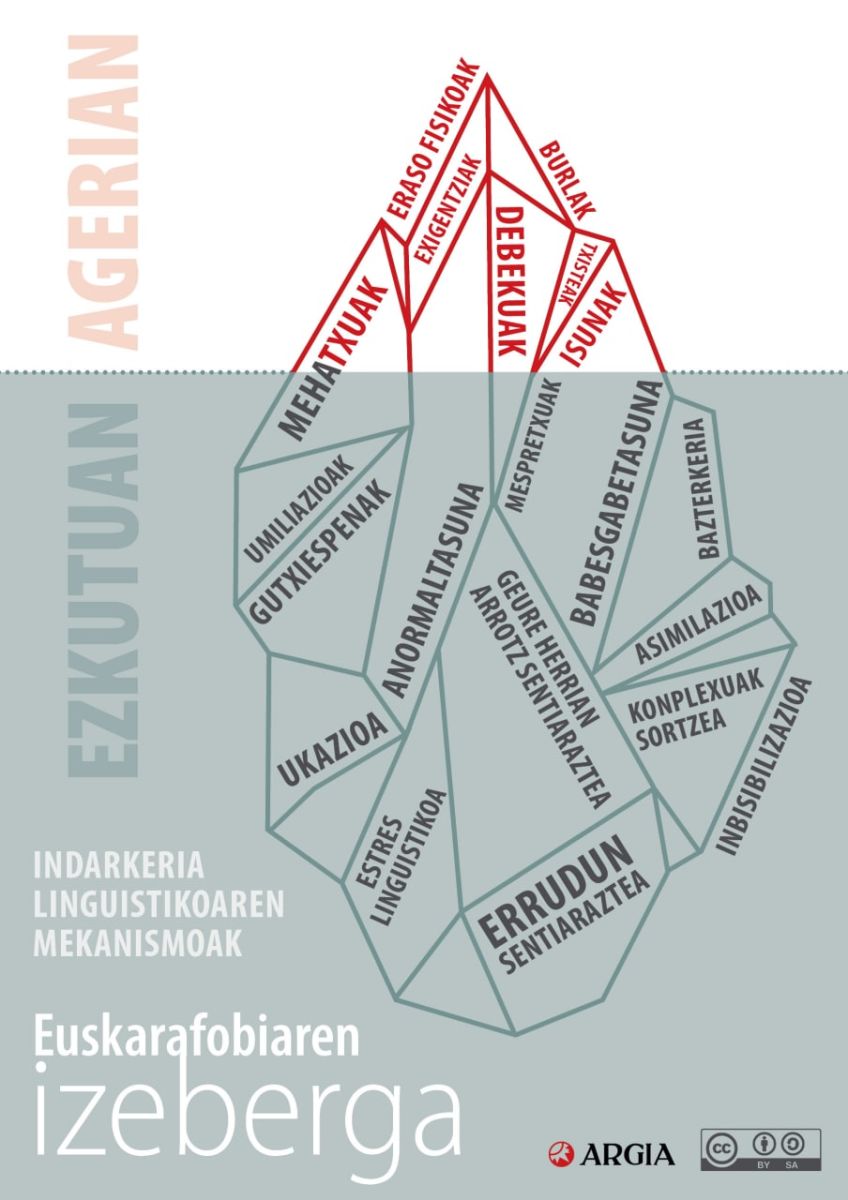
Download the top image here in high quality.
The resistance is not yesterday morning either.
Let us do thousands of years ago and locate in La Rioja, in the village of Ojacastro, near the border with Burgos: Year 1239.El Basque is the main language and most citizens are
monolingual Basque. One day the Lord of the Castilian vaguada forbids the Ojacastrans to speak in Basque before the people’s judge. “What? ! Forbid our language.” The mayor presides and the imposed valley lord is kidnapped by the citizens in a battle that will last for several days. They say they will not release the right to speak in Basque until King Ferdinand III of Castile recognizes them. Tell him and do it. The king has had to state expressly that yes, that the priests have the right to speak in their language before the judge.
It is the oldest testimony to the persecution of the documented Basque. Like the resistance of the Basques to taxation. In the masterpiece of Autopsy Tests, as Koldo Izagirre said:
Leave the vocabulary of the
rain that does not draw the people
of Euskaldun and lose the
air before losing it.
Testimonies of oppression
"He told us about the humiliations and abuses he suffered when he went through the School of Scholastics. Among other things, every time he spoke Basque, he was forced to make a cross on the ground with his tongue.” Book Subjects, villages and landscapes of Gipuzkoa (1945)
San Juan de Luz Jean Louis Iratzoki came home after dinner at an inn. Speaking to the nephew who was on the street balcony, in Basque, three men who passed next to him asked badly what that patois was talking about; they were in France and began to speak French. He told them that he was Basque and the three men became aggressive. Beaten, wounded, broken ankle, had to be taken to the hospital in Baiona. Diario Berria (2 July 2021)
"Pointing at what was on the counter and I went with my finger, I asked for an anchovy. His laborer answered me We are in Spain and tell me in Spanish. When we came back a while and asked for a claim book, he said I told your country Go. I absolutely deny that that has been said.” Observatory on Linguistic Rights (Report 2022)
"If you listen to speak, you'd remember the dogs that bark, which have an absolutely savage language." Codex calixinus, Section V (between 1138 and 1145)
"The teacher gives a ring to a child at the beginning of the week. This child is called King. Be careful that the children of the school do some Basque word at school or school to some other of the school, and give it a ring. This has to be attentive again to the same account and give the ring and so on. At the end of the week, the teacher asks about the ring, or who and who are the ones that have been given. All of them must be placed with their arms crossed, the shirt is picked up from the back and punished. This is how they hate their nature.” Extracted from Tests for the Autopsy, the reference of the book Guillermo de Humboldt and the Basque Country was published in 1925.
"I made an email request and put the address in Basque. The Postal Express Worker of Vitoria called me very badly saying that I Basque or fucking idea, I speak in Christian, if you want to be sent the package give me the address in Spanish”. Observatory on Linguistic Rights (Report 2022)
"If you want up-to-date and comprehensive information about COVID-19 vaccination, you should go to Spanish. The Government of Navarra does not treat everyone equally, it does second-class Basques.” Observatory on Linguistic Rights (Report 2022)
From linguistics or glotophobia and, of course, hatred against Basque, we have often seen our Basque become the dandruff of all sticks. Last of all, the president of Kutxabank, Anton Arriola, has been shaking our language and giving us galantas.The President of Kutxabank,
... [+]
Euskal Herrian Euskarazek manifestazioa deitu du apirilaren 6rako, 11n EHEko bi kide epaituko dituztelako. Hiriburuetatik autobusak antolatzen ari dira. Bi helburu bete nahi dituzte, batetik, epaituak izango diren bi kideei babesa erakustea, eta bestetik, euskararentzat justizia... [+]
"Poloniar bat etortzen bada eta bost urte pasako baditu proiektu batean, joder agian ez zaio egoki irudituko seme-alabek euskaraz ikastea, ezta?", bankuko lehendakari Anton Arriolak adierazi duenez. Euskalgintzako eragileek gogor kritikatu dute eta esandakoa... [+]
Ba al dakizue frantses batzuk harritu egiten direla mugaren alde honetan ere euskaldunak bagaudela jakitean? Ba bai, harrigarria bada ere, behin, Donostian, frantses batzuei entzun nien sinetsi ezinik beren buruari galdetzen: “Saint-Sébastien est au Pays... [+]
Gasteizko 1 zenbakiko Auzitegi Kontentzioso-Administratiboak emandako epaia berretsi du EAEko Justizia Auzitegi Nagusiak. Lan poltsan parte hartzeko euskara maila altuenaren baliokide diren 3. eta 4. eskakizunak indargabetu zituen Gasteizko Auzitegiak.
Euskal Herrian Euskarazen arabera, Tolosako tren geltokiko segurtasun agente batek eraso egin zion militante bati, agenteari euskaraz hitz egiteko eskatu ziolako. Tolosako alkateak "kezka" adierazi du eta azalpenak eskatuko dituela jakinarazi.













